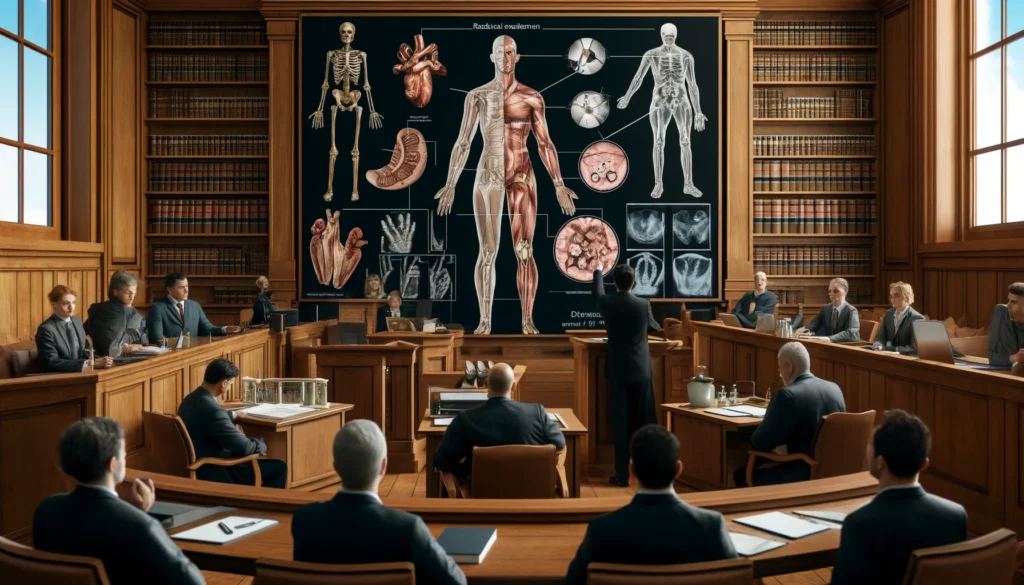
When you’ve been injured due to someone else’s negligence, securing fair compensation hinges on the strength of your case. One of the most critical components of a robust personal injury claim is medical evidence. At Ryan Orsatti Law, we understand the pivotal role medical evidence plays in personal injury cases in Texas. This blog post delves into why medical evidence is crucial and how it can impact your case.
What is Medical Evidence?
Medical evidence encompasses all the documentation and records related to your injuries and medical treatment. This includes:
- Medical Records: Detailed accounts of your injuries, treatments, and medical history.
- Doctor’s Notes: Notes and diagnoses from your healthcare providers.
- Test Results: Results from X-rays, MRIs, CT scans, and other diagnostic tests.
- Medical Bills: Invoices and receipts for medical expenses incurred.
- Expert Testimony: Statements from medical experts who can attest to the severity and impact of your injuries.
Why is Medical Evidence Important?
- Proves the Extent of Your Injuries
Medical evidence provides an objective measure of the injuries you sustained. It documents the severity and nature of your injuries, which is essential for determining the compensation you deserve. Without detailed medical records, it becomes challenging to prove the extent of your injuries.
- Establishes Causation
In a personal injury case, you must establish a direct link between the accident and your injuries. Medical records help demonstrate that your injuries were caused by the accident and not by a pre-existing condition or subsequent event. This is crucial for holding the negligent party accountable.
- Supports Your Testimony
Your medical records back up your statements about the injuries you suffered. They provide a factual basis that corroborates your claims, making your testimony more credible in the eyes of the court and the insurance companies.
- Quantifies Damages
Accurate medical evidence helps quantify the damages you’ve incurred, including medical expenses, lost wages, and pain and suffering. This is essential for calculating the total compensation you’re entitled to receive.
How to Gather and Present Medical Evidence
- Seek Immediate Medical Attention
After an accident, it’s vital to seek medical attention immediately, even if you think your injuries are minor. Prompt medical evaluation not only ensures your health but also creates an official record of your injuries from the outset.
- Follow Through with Treatment
Consistency in treatment is crucial. Follow your doctor’s recommendations and attend all follow-up appointments. Gaps in treatment can be used against you, suggesting that your injuries are not as severe as claimed.
- Document Everything
Keep detailed records of all medical visits, treatments, and expenses. This includes prescriptions, therapy sessions, and any modifications to your home or lifestyle due to your injuries.
- Consult with Legal Experts
Working with experienced personal injury attorneys, like those at Ryan Orsatti Law, can help ensure that your medical evidence is comprehensive and effectively presented. We can connect you with medical experts who can provide crucial testimony to support your case.
Conclusion
In personal injury cases, medical evidence is not just important – it is indispensable. It serves as the foundation of your claim, helping to prove the extent of your injuries, establish causation, support your testimony, and quantify damages. At Ryan Orsatti Law, we are dedicated to helping our clients gather and present the strongest possible medical evidence to achieve the best outcomes.
For more information on personal injury law and the importance of medical evidence, visit the following authoritative sources:
- National Institutes of Health (NIH)
- Centers for Disease Control and Prevention (CDC)
- Texas Department of Insurance
For expert legal assistance with your personal injury case, contact Ryan Orsatti Law today.

